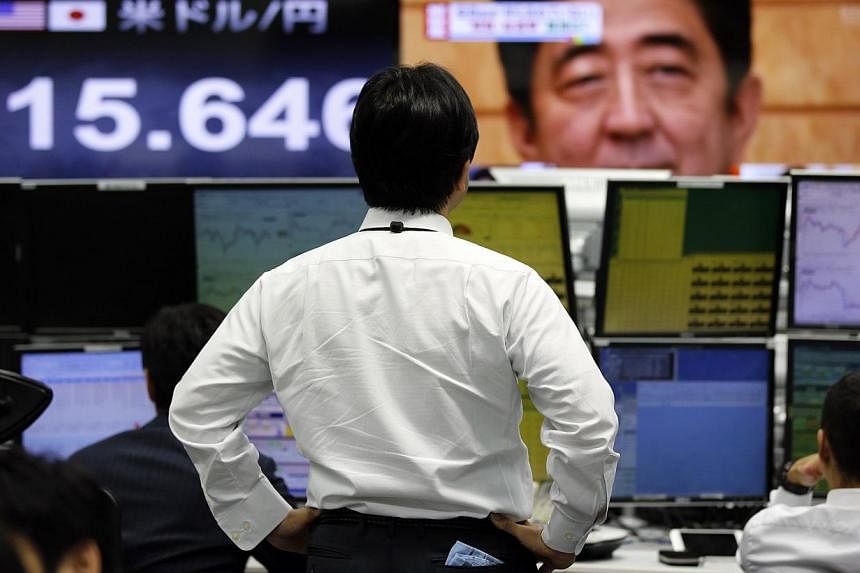TOKYO (Reuters) - Japan's ruling coalition has approved a tax reform plan that will cut the corporate tax rate from April and pledge further reductions in coming years in a bid by Prime Minister Shinzo Abe to boost profitability and bolster economic growth.
The pledge contained in a draft of the tax reform plan reviewed by Reuters on Tuesday would cut the overall effective corporate tax rate by 2.51 percentage points to 32.1 per cent.
The plan was set to be approved by Mr Abe's Liberal Democratic Party and coalition partner Komeito early on Tuesday afternoon. The Cabinet is expected to approve it in early January. The plan also confirms a pledge made by Mr Abe in June to lower the corporate tax rate to below 30 per cent over the coming years to help pull Japan out of nearly two decades of deflation.
The tax reform plan follows a US$29 billion (S$38.38 billion) stimulus package approved by the government earlier this month. Mr Abe hopes the tax cut will encourage companies to raise wages, which in turn should spur consumer spending.
The effective corporate tax rate is 34.6 per cent for big companies based in Tokyo, among the highest in the major economies. The average corporate tax rate stands around 25 per cent among OECD economies.
Mr Abe and his ruling coaling won a majority in snap elections this month, giving him a fresh mandate to push through his "Abenomics" stimulus policies. The economy unexpectedly slipped into recession this year after an increase in the national sales tax in April hit consumer spending much harder than expected.

